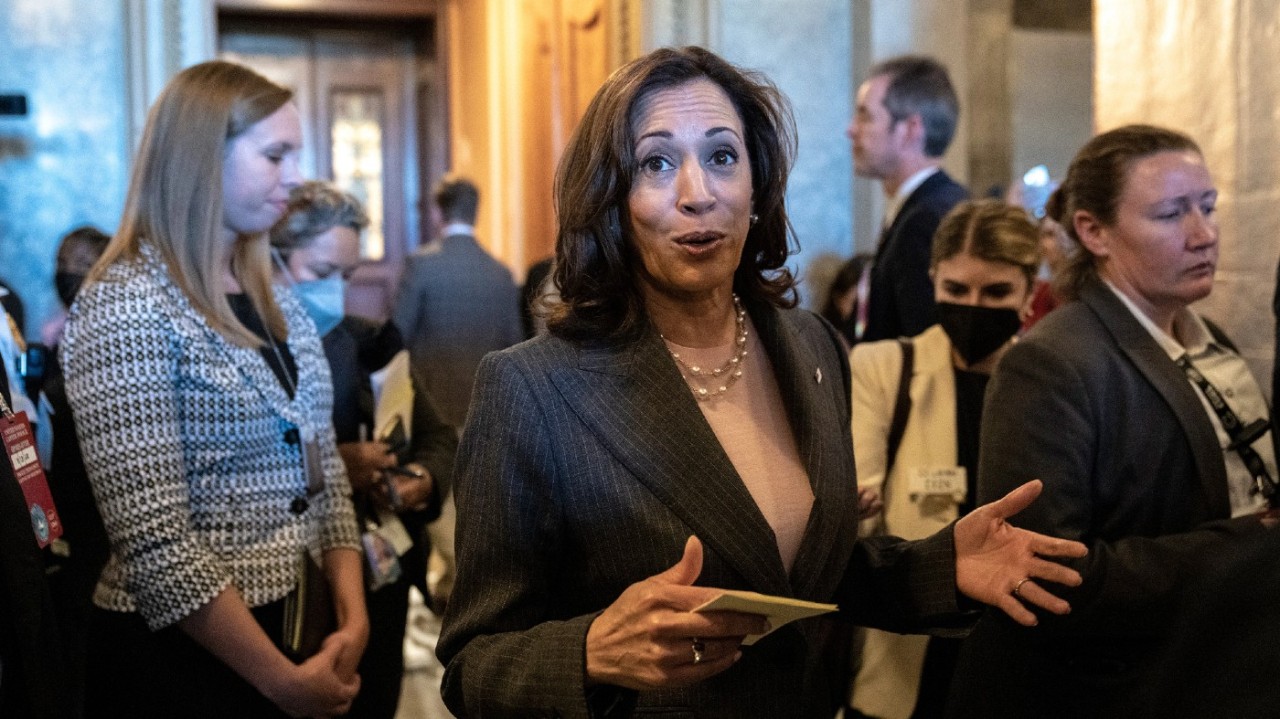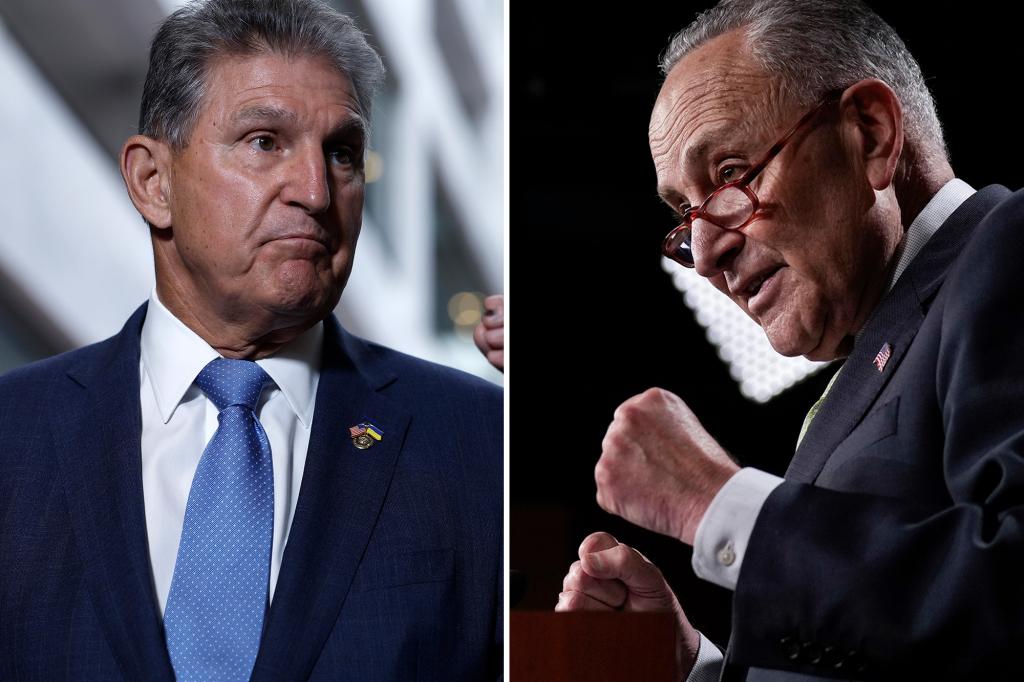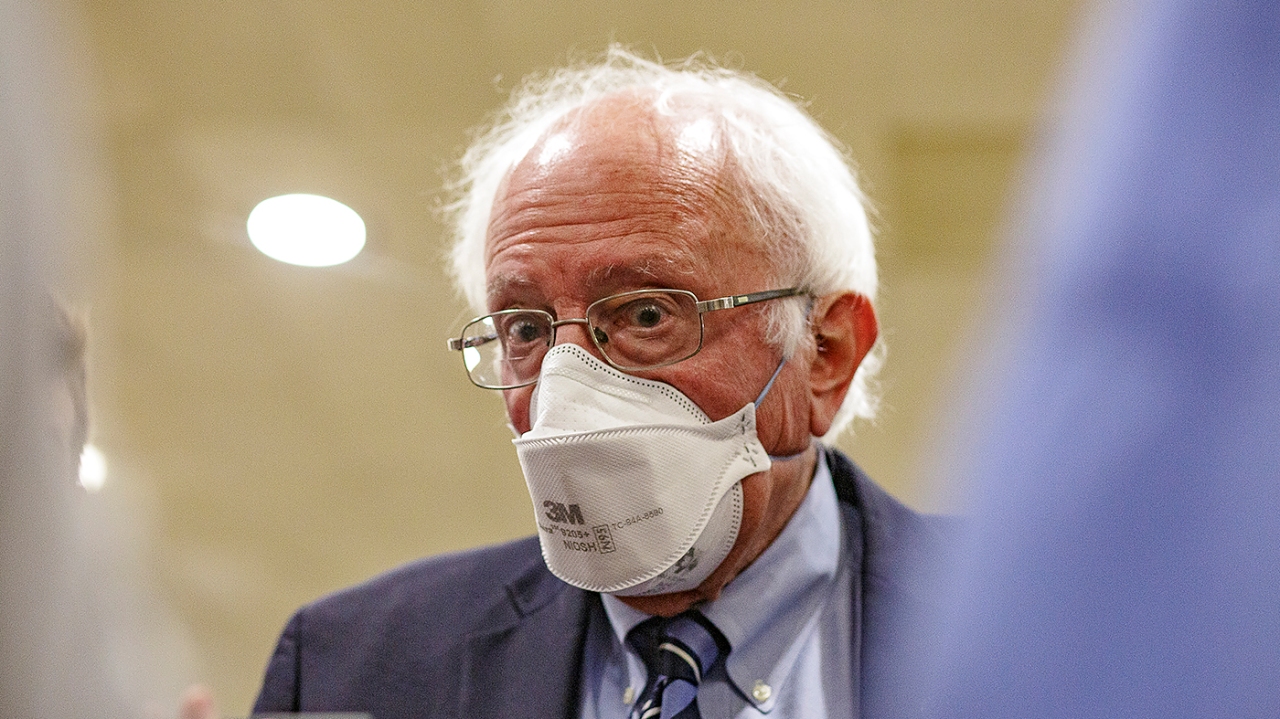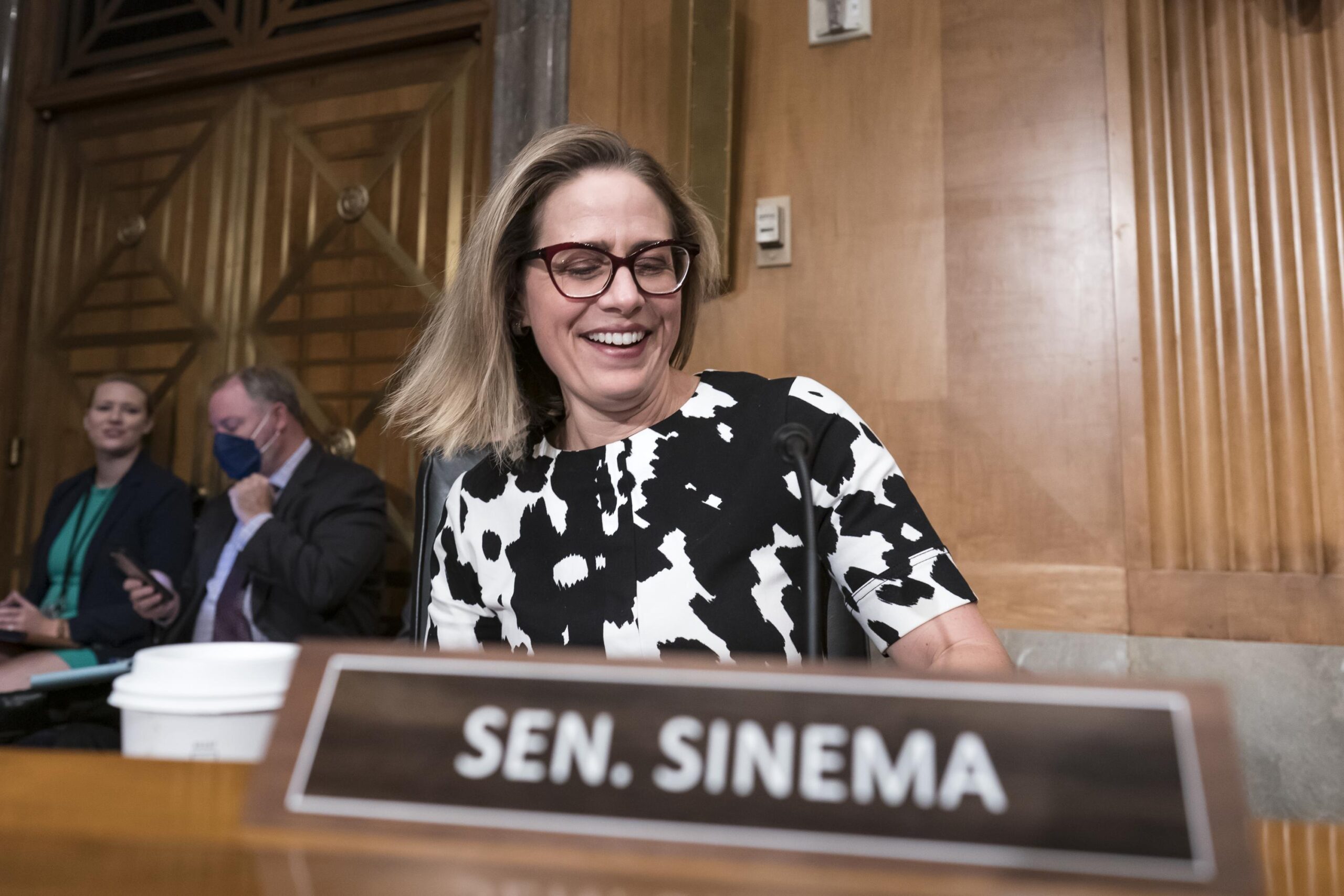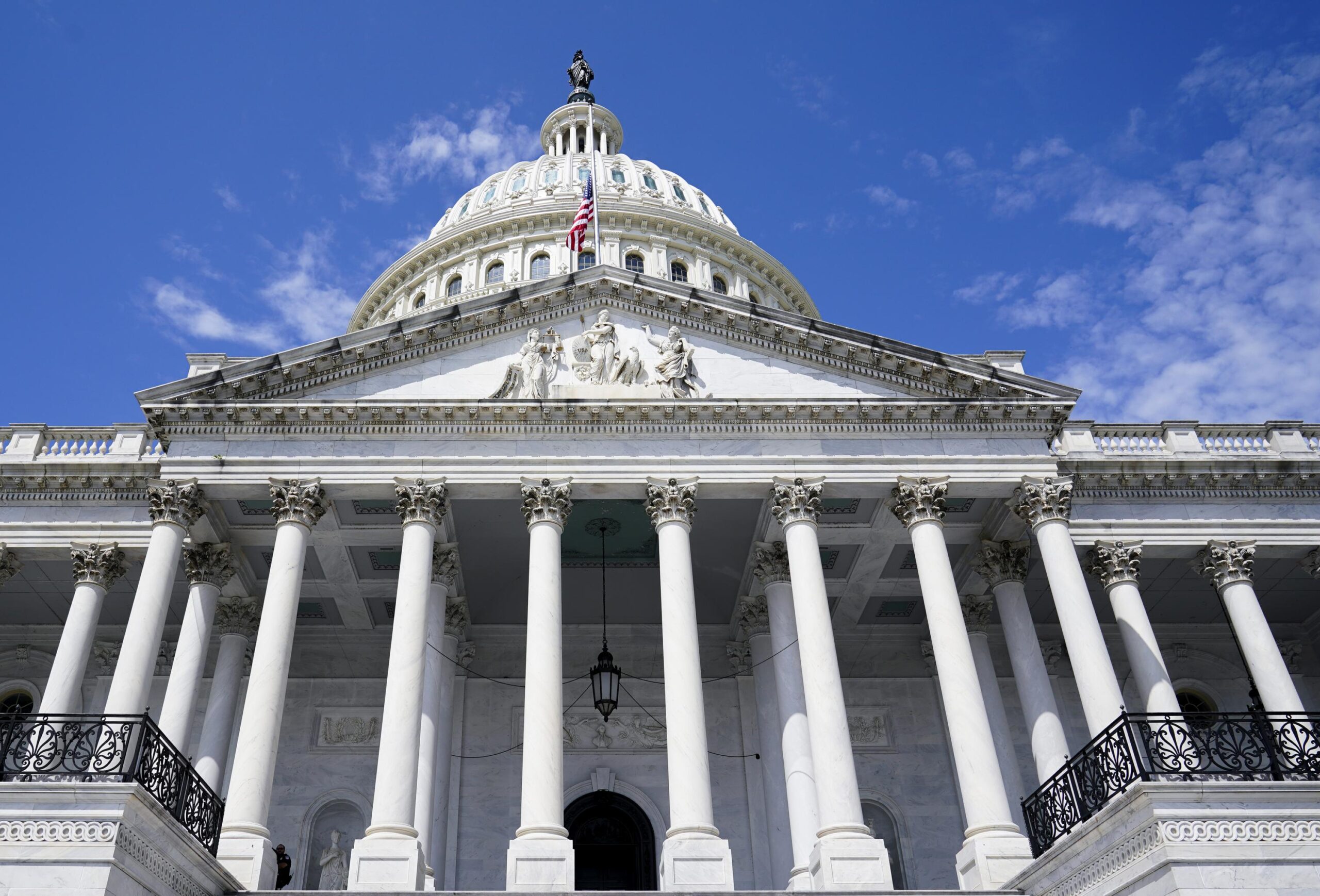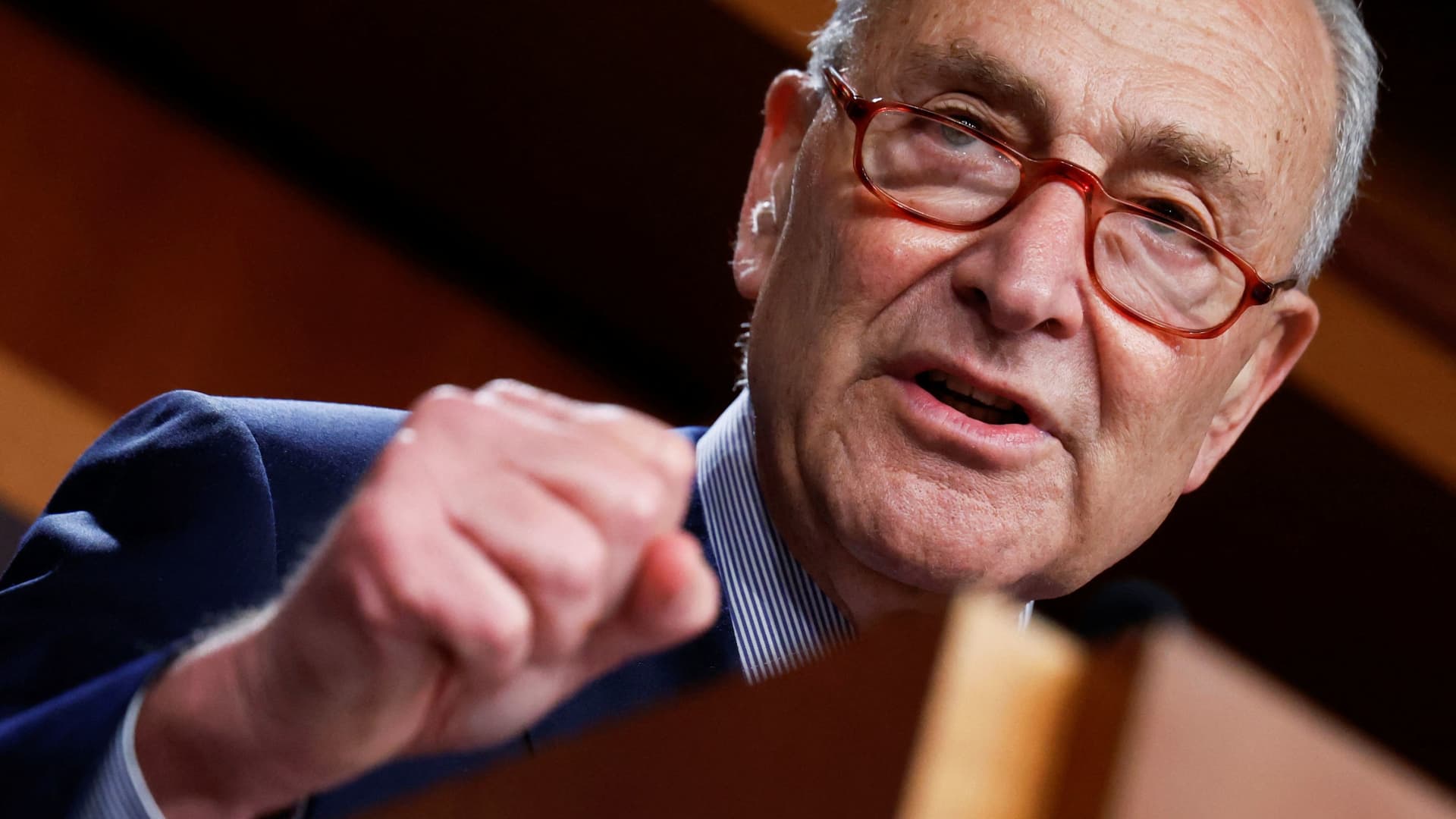The Senate passed Democrats’ Inflation Reduction Act on a party-line vote Sunday afternoon, delivering the long-awaited centerpiece to President Biden’s agenda.
Democrats rallied behind the $430 billion climate, health care and tax overhaul after Senate Majority Leader Charles Schumer (DN.Y.) reached a last-minute deal with Sen. Joe Manchin (DW.Va.), who had held up previous proposals.
The House is expected to approve the legislation on Friday and send it to Biden’s desk.
Here’s a summary of what’s in the Inflation Reduction Act:
ENVIRONMENT, ENERGY AND CLIMATE
Businesses would get incentives for deployment of lower-carbon and carbon-free energy sources.
- Tax credits are extended for energy production and investment in technologies including wind, solar and geothermal energies. The investment tax credit also now applies to battery storage and biogas.
- Tax credits would be created or extended for additional technologies and energy sources including nuclear energy, hydrogen energy coming from clean sources, biofuels and technology that captures carbon from fossil fuel power plants.
- Many of the incentives also contain bonuses for companies based on how much they pay their workers and offer credits for manufacturing their steel, iron and other components in the US
Consumers and businesses get incentives to make cleaner energy choices.
- Tax credits are extended for residential clean energy expenses including rooftop solar, heat pumps and small wind energy systems. Consumers can get credits for 30 percent of expenditures through 2032, and the credit phases down after that.
- Tax credits of up to $7,500 are offered to consumers who buy electric vehicles — but this credit comes with stipulations that may make it difficult for vehicles to actually qualify.
- A tax credit would be expanded for energy efficiency in commercial buildings.
Some fossil fuel production on public lands would be bolstered.
- The future of solar and wind on public lands and wind in public waters would be tied to requirements to hold lease sales that open up new oil and gas production.
- The bill reinstates the results of a recent offshore oil and gas lease sale that was struck down on environmental grounds. The Interior Department would be required to hold at least three more offshore oil and gas lease sales by next October.
New programs boost investment in climate.
- A new program aims to reduce emissions of the planet-warming gas methane from oil and gas by both providing grants and loans to help companies reign in their emissions and levying fees on producers with excess methane emissions.
- $27 billion would go to a green bank that would provide more incentives for clean energy technology.
Costs increase for fossil fuel production on public lands.
- Minimum royalties increase for companies to pay the government for oil and gas they extract on public lands and waters. A royalty is added to the extraction of gas that is later burned off or released as waste instead of sold as fuel.
Communities that face high pollution burdens get relief.
- $3 billion would go to environmental justice block grants — community-led programs addressing harms from climate change and pollutants, including $20 million for technical assistance at the community level, through fiscal 2026.
- More than $3 billion is allocated to funds for air pollution monitoring in low-income communities. Nearly half of the funds — $117 million — would specifically go to communities in close proximity to industrial pollutants.
- An excise tax on imported petroleum and crude oil products to fund the cleanup of industrial disaster sites increases from 9.7 cents to 16.4 cents per barrel. The reinstatement of the tax is projected to raise $11 billion.
- The bill permanently extends and increases the Black Lung Disability Trust Fund, a tax on coal production to finance claims from workers with the condition. Black lung, caused by long-term exposure to and inhalation of coal dust, is believed to affect at least 10 percent of coal miners with at least 25 years’ experience, according to a 2018 study by the National Institute for Occupational Safety and Health.
— Rachel Frazin and Zack Budryk
HEALTH CARE
Medicare can negotiate lower prices.
The bill would allow Medicare to negotiate prices for some drugs for the first time, a policy Democrats have been trying to enact for years over the fierce objections of the pharmaceutical industry. The provisions save more than $200 billion over 10 years.
- It would allow Medicare to negotiate lower prices for 10 high-cost drugs beginning in 2026, ramping up to 20 drugs by 2029. There is a steep penalty if a drug company doesn’t come to the table: a tax of up to 95 percent of the sales of the drug. There is also a ceiling that the negotiated price cannot rise above.
- In a deal with moderates including Sen. Kyrsten Sinema (D-Ariz.), only older drugs are subject to negotiation after a period of nine years for most drugs and 13 years for more complex “biologic” drugs. That means the negotiations are more limited than many Democrats wanted.
Drug costs can be capped but largely only for Medicare.
The bill includes other measures to cap drug costs. The provisions still largely apply only to seniors on Medicare, not the millions of people who get health insurance through their jobs, in part because complex Senate rules limited how expansive the provisions would be.
- If drug companies raise prices in Medicare faster than the rate of inflation, they must pay rebates back to the government for the difference.
- Democrats tried to apply this provision to the private market, but the parliamentarian ruled it violated the Senate rules used to bypass a GOP filibuster.
- In one of the most tangible provisions for patients, the bill caps out-of-pocket drug costs at $2,000 a year for seniors on Medicare, starting in 2025.
- The bill also caps patients’ insulin costs at $35 a month, but only for seniors on Medicare. Republicans voted against overruling the Senate parliamentarian to extend that protection to patients with private insurance.
People enrolled in ACA plans get an extension on premium assistance.
The measure also builds on the Affordable Care Act (ACA) by extending enhanced financial assistance to help people enrolled in ACA plans afford premiums for three years. The extra help would otherwise have expired at the end of this year, setting up a cliff. The provision expands eligibility to allow more middle-class people to receive premium help and increases the amount of help overall.
—Peter Sullivan
TAXES
Large corporations will pay for climate and health measures within the bill.
The bill introduces new taxes on corporations to pay for its climate and health care measures.
The centerpiece of its tax plan is a 15 percent minimum tax on the income that big corporations report to their shareholders, a tax known as the minimum book tax. Initial proposals put the amount of revenue raised by the book tax at $313 billion — more than 40 percent of the $740 billion raised by the legislation as a whole.
The tax applies to companies reporting $1 billion in annual earnings. It would impact only around 150 large firms, according to the Joint Committee on Taxation.
Sinema demanded some last-minute exclusions to the minimum tax that were favorable to the US manufacturing sector and private equity firms.
- The tax will exempt companies taking advantage of accelerated depreciation, a popular deduction that helps pay for capital investments such as new equipment.
- Small businesses that are subsidiaries of highly profitable private equity firms will also be exempted from the minimum tax.
The IRS gets a funding boost.
Another key measure allocates $80 billion to increase enforcement at the IRS. Democrats hope that, with more employees and better technology, the IRS can more closely examine wealthy individuals and ensure they aren’t dodging taxes. That extra revenue is expected to lower the deficit by $203 billion over the next decade.
Stock buybacks will get an additional tax.
The bill enacts a 1 percent excise tax on stock buybacks to replace the revenues lost by appeasing Sinema. Democrats expect the provision to raise $74 million over a decade.
Share repurchases by S&P 500 companies have soared in recent years and are on track to surpass $1 trillion this year. Companies buy back their stock to reward shareholders and increase their stock price by artificially limiting supply.
- The tax will impact the nation’s largest companies that rely on multibillion-dollar buybacks to raise their stock price, including Apple, Nike and Exxon Mobil.
- Democrats have criticized the practice, arguing that companies should invest in workers and innovation instead of repurchasing stock.
To further recover revenue lost to the private equity sector, the bill also extends a set of limitations on losses that businesses can deduct from their taxes. The limits prevent wealthy individuals from significantly bringing down or even wiping out their income tax liability. Sen. Mark Warner (D-Va.) said that extending the caps would raise $52 billion.
— Tobias Burns and Karl Evers-Hillstrom
.
